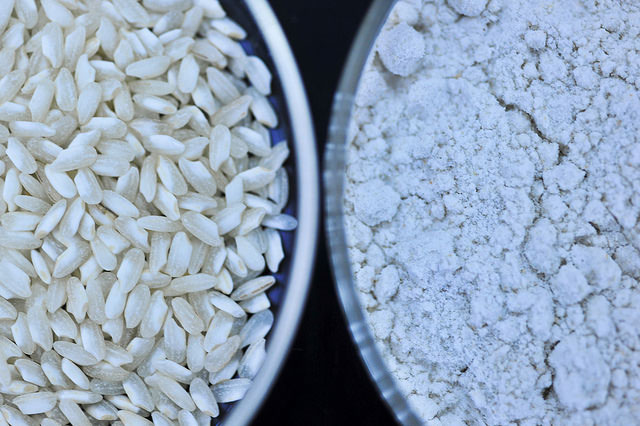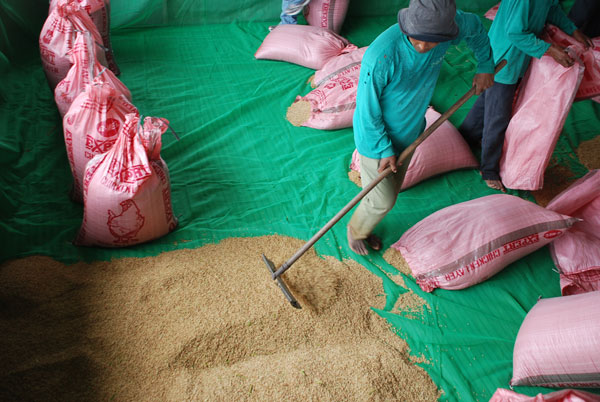Increasing value
IRRI develops ways to add economic, nutritional, and environmental value to rice by reducing postharvest losses, improving grain quality of new rice varieties, improving value-chain linkages, investigating uses of husks and straw to produce bioenergy, cut carbon emissions, and increase carbon sequestration.

Present postharvest losses in the developing world can be between 15 and 25%. In addition, poor quality can cause financial loss in the market of 10-20%. IRRI works to improve the postharvest value chain, as well as identify and verify the effectiveness of postharvest technologies with end-users.
Each year, hundreds of millions of tons of rice straw and husks are produced and are commonly disposed off by burning, thus emitting greenhouse gases. IRRI is determining the variability and digestibility of straws as livestock feed to provide local business opportunities for extra income. In addition, IRRI is developing practical ways to generate and use biochar, which is derived from rice residues, to reduce carbon emissions and improve soil fertility.

Demand for specialty rice products is increasing globally. Supplying rice varieties for these high-value markets will increase economic benefits to farmers and nutritional benefits to consumers. IRRI finds ways to select for quality and speciality traits through taste, flavor, texture, and identifies components in grain that determine sensory and cooking properties.

